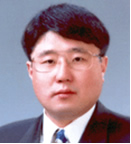报告主题:Development of carbon-based nano materials for high efficient CO2 capture
报告时间: 2016年05月06日上午10:00
报告地点: 东华大学延安路校区第二会议室,
报告人及简介:
Soo-Jin Park Ph.D., Professor,Inha University, South Korea
Soo-Jin Park, a professor of chemistry department at Inha University, South Korea, received his BS degree from the Department of Chemical Engineering of Ajou University (South Korea) in 1986. In 1998, he received his MS degree in Institut de Chimie des Surfaces et Interfaces from Centre national de la recherche scientifique (CNRS) in France. Then he received his PhD degree from same University in 1992. Later he became a professor at Inha University (2005-present). He served vice president of the Korea Chemical Society (KCS) in 2010. Prof. Soo-Jin Park is now an Inha Fellow Professor, member of the Korea Academy of Science and Technology (KAST), vice president of the SAMPE-KOREA, and director & editor of the Polymer Society of Korea.
His primary research interests include surfaces and interfaces of carbon, ceramic, polymer, and composite materials. Also, He has been working in adsorption and catalytic properties of nanoporous materials for energy, electronics, and environments. His main achievements include being chief editor of books “Carbon fibers” (Springer) and “Interface Science and Composites” (Elsevier Academic Press), 712 published SCI journal papers with more than 15170 citations, and H-index is 58. Prof. Park also received the 14th Acdemic Award of Korean Society of Industrial & Engineering Chemistry (2016), the Advanced Academic Award of the Korea Chemical Society (2016), and the 22th Best Paper Award of the Korean Federation of Science and Technology Societies (2012).
报告大纲:Environmental issues due to emissions of pollutants from combustion of fossil fuels have become global problems, including air toxics and greenhouse gases (GHGs). To keep GHGs at manageable levels, large decreases in CO2 emissions through capturing and separation will be required. To date, most of commercial CO2 capture plants use amine-based processes and wetscrubbing systems, but they are energy intensive due to the large amount of water needed in these systems. Carbon-based materials using activated carbons, activated carbon nanofibers, carbon nanotubes, graphite nanofibers, and so on, are being proposed as suitable candidates forCO2 adsorption: they do not require any moisture removal, present a high CO2 adsorption capacity at ambient pressure and, more over, they are easy to regenerate. Due to acidic role of CO2, it is expected that the introduction of Lewis bases onto the ACM surfaces may favour the CO2 adsorption performance of these materials. Thus, the focus of this work is the use of carbon-based materials as efficient CO2 adsorbents through surface treating them with chemical agents that have a high affinity for CO2.

